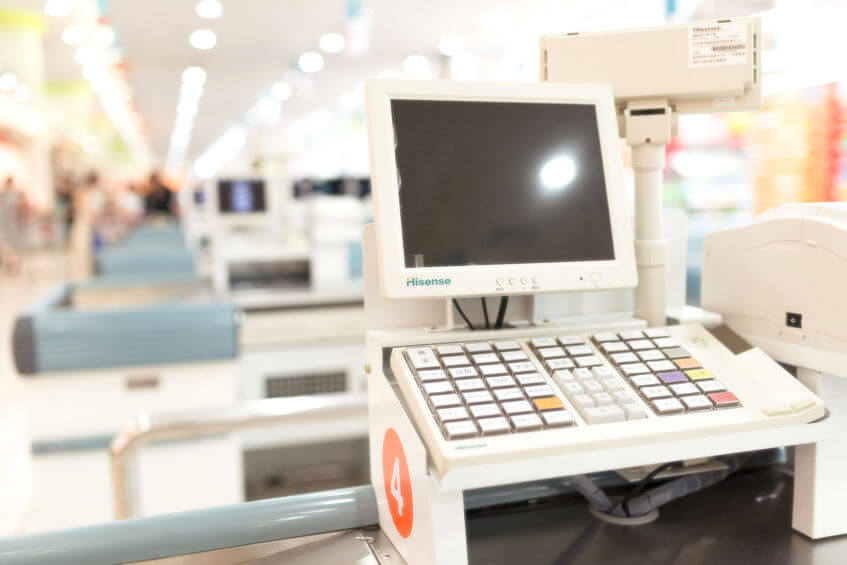While the majority of us are holed up at home waiting out the coronavirus, grocery store clerks don’t have that luxury.
Along with doctors and nurses and other essential workers grocery store clerks, drivers and stockers go to work each day, interacting with hundreds of customers and putting their lives on the line so we can get our groceries.
This past week, 48-year old Keith Saunders, a manager at an Oshawa Real Canadian Superstore, died from COVID-19, while a second employee at the store tested positive for the virus. Longos reported that three of its workers including one driver for Grocery Gateway have tested positive for COVID-19, while Metro has confirmed one its employees has also tested positive.
Clearly, grocery workers are on the frontlines of the pandemic, however, they’re not necessarily getting the support essential service workers deserve.
Hero Pay
To their credit, Canada’s largest grocers have stepped up hourly wages for store workers.
While the average pay of a grocery cashier is little over $13 per hour in Canada (higher in some provinces like Ontario), they’re now getting about $2 extra per hour, which Sobey’s is calling Hero Pay.
Is $2 more per hour adequate compensation for those putting their lives on the line?
Some of those clerks who can afford to are no doubt staying home, which is why the grocers have moved recruitment activities into high gear
Major grocers have signaled that if workers are feeling unwell, they are encouraged to stay home. Though, in most cases, they don’t get paid.
What more needs to be done for grocery workers financially?
It’s critical for everyone’s safety that grocery workers who interact all day with the public don’t feel financial pressure to come into work because they can’t afford to take a sick day. At the same time, if grocers do offer full paid sick days with no doctor’s note, there’s a risk grocery stores would have trouble staffing their stores.
One solution would be to offer fully paid sick leave without doctor’s notes for up to 14 days, while at the same time topping up worker’s salaries to time and half during the course of the pandemic.
One way the grocery chains could afford the move would be by cutting share buybacks and dividends paid to shareholders, combined with some support from the federal and provincial governments. As an example just half the amount Loblaw Companies paid out to shareholders in 2019 (dividends and share buybacks) would be enough to increase each one of Loblaw’s 194,000 employees pay by $7 per hour for the next three months.
Boosting health and safety measures
Major grocers have stepped up on a number of levels to make stores safer, including hiring security guards (who are also at risk) to restrict the number of people allowed in a store at one time, erecting plexiglass protections for cashiers, providing hand sanitizer and more frequent breaks to wash their hands.
But most stores are still letting workers decide for themselves when it comes to personal protective equipment likes masks and gloves. Grocers should be ensuring that workers in close contact with customers have full access to proper protective gear (e.g. proper safety gloves and masks, which need to combined with proper training to be effective). Admittedly, Canada is in the midst of a protective equipment shortage and Loblaw’s Galen Weston says Loblaw is working “around the clock” to secure medical grade masks, hand sanitizer, and gloves.
To help ensure their safety and the safety of the public, the Public Health Agency of Canada could build ethical guidelines so that grocery clerks and other essential workers are next in line right after healthcare, police and fire workers to receive rapid COVID-19 testing as well as personal protective equipment and treatment.
The federal government can also help ensure that grocery and other essential workers are provided with solutions for emergency childcare needs, which Minnesota, Vermont and the Netherlands are now doing.
In the meantime, we can all play a role thanking these unsung heroes when we see them behind the counter or in aisle.
As German Chancellor Angela Merkel, who made a point to thank supermarket workers in a national address Wednesday, said “Those who sit at supermarket cash registers or restock shelves are doing one of the hardest jobs there is right now.
“Thank you for being there for your fellow citizens and literally keeping the store going.”
What the grocery stores are doing for their workers
- Temporarily increase wages by 15% for all store and distribution centre workers
- Reducing operating hours (7 a.m. to 8 p.m.) with seniors’ shopping hour for first hour
- Modifying service counters to have more pre-packaged product
- Limiting the number of customers allowed in busiest stores
- Installing plexiglass shields for the checkout counters and working to secure medical grade masks, hand sanitizer, and gloves
- [Unspecified] Safeguards to ensure employees don’t lose pay over COVID-19-
Sobeys
- Teammates reportedly washing hands every 15 minutes
- Reducing store hours (from 8 a.m. to 8 p.m.) with seniors’ shopping hour for first hour
- Plexiglass cashier screens
- Stopped selling bulk goods, samples
- Floor markers at each checkout
- Strictly enforce policy that teammates who feel sick do not come into work (no mention of fully paid sick-leave)
- All teammates receive an additional $50 per week and $2/hour premium over 20 hours
- Top-up programs for employees in self-quarantine or for taking time off work to care for dependents or children
- Reduced business hours (7 a.m. to 8 a.m.) with first hour reserved exclusively for seniors and more vulnerable
- Plexiglass shields at the checkouts and floor stickers at check-out lines
- Cash registers now allow contactless payment up to $250 for most credit cards
- Closed bulk counters, soup bars, olive bars and bread-slicers.
- Stores applying a limit for in-store traffic to respect the rules of social distancing
- Employees to stay home if they feel ill (no mention of fully paid sick-leave)
- Greeters at the store entrance to wipe down carts and remind customers about social distancing practices within the store
- Stores continue to be cleaned on a regular basis following high standards of hygiene, and increased frequency of cleaning rounds of equipment cleaning with extra focus on high-traffic areas of the store.
- The wages of its employees working in stores and distribution centres have been increased retroactively by $2 per hour, from March 8 to May 2.
- METRO is offering its employees an additional benefit ensuring an income replacement rate equivalent to 95% of their wages in case of isolation
- Offering access to the Employee and Family Assistance Program (EFAP) to its employees in stores, distribution centres and offices to provide them with the support and advice they need.
- Reduced hours and opening hour dedicated to seniors, disabled and those with vulnerable health conditions
- Plexiglass at registers and pharmacy desks
- Bonus of $200 for all full-time associates and $100 for all part-time associates + “Thank You Premium” of $2.00 hourly for every store and supply chain Associate on top of their hourly rate (April 3 through April 30).
- Access to Walmart’s online physician care at no cost
- Support for quarantined associates: two-week replacement pay for associates under mandated quarantine and additional supplemental income for those with confirmed cases who are require to stay home beyond two weeks.
- Mapping out social distancing parameters throughout the store
March 31 update to Walmart policy:
Single-direction aisles are being added to Walmart stores in the U.S. and Canada.
Walmart in the US will begin taking workers’ temperatures at stores and warehouses before they begin their shifts, as well as asking them some basic health screening questions (Walmart US is in the process of sending infrared thermometers to all locations, which could take up to three weeks).
Any associate with a temperature of 100.0 degrees will be paid for reporting to work and asked to return home and seek medical treatment if necessary. The associate will not be able to return to work until they are fever-free for at least three days.
Masks will be made available — as supplies permit — for associates who want to wear them. The masks will arrive in 1-2 weeks. They will be “high-quality masks, but not N95 respirators – which should be reserved for at-risk healthcare workers.”
Toby Heaps is CEO and editor-in-chief of Corporate Knights.
Michelynn Lafleche is a Senior Advisor to Corporate Knights. She is known for her research on precarious work and labour market change in Canada.







